Water Distiller
Water distillers use a process called distillation to clean water. In its simplest form, distillation involves heating water until it becomes steam and then condensing that steam back into liquid water in a separate vessel. This process removes impurities and potential contaminants, such as minerals, heavy metals, viruses and bacteria. This is the same principle on which the distillation of alcohol and other liquids is based.
Water purified by distillation is essential for many laboratory procedures and experiments, as it avoids interference of the results by unwanted elements or contaminants present in the undistilled water. In this sense, water distillers are essential devices for the precision and accuracy of laboratory work.
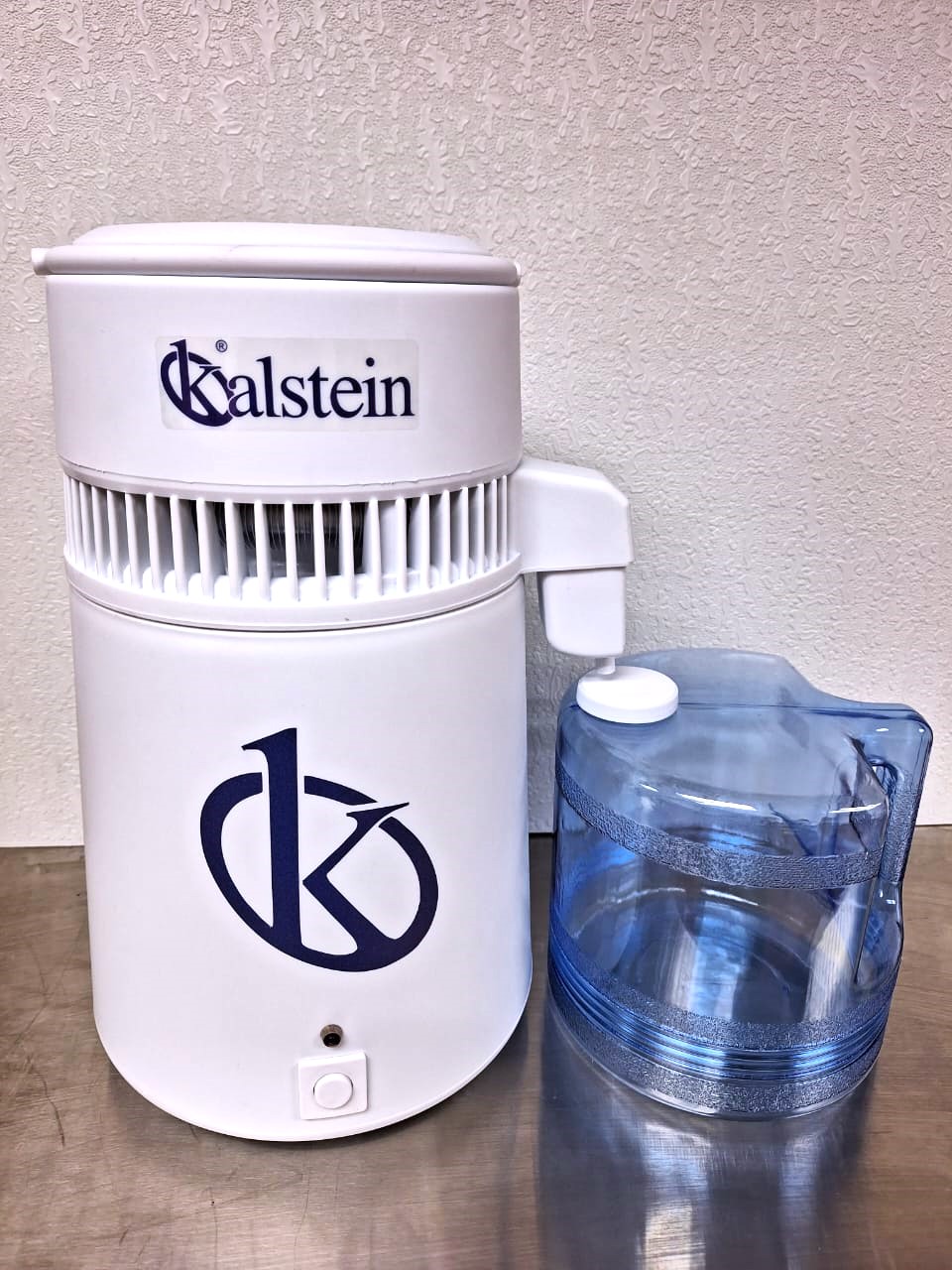
Types of Water Distiller that a Laboratory may require
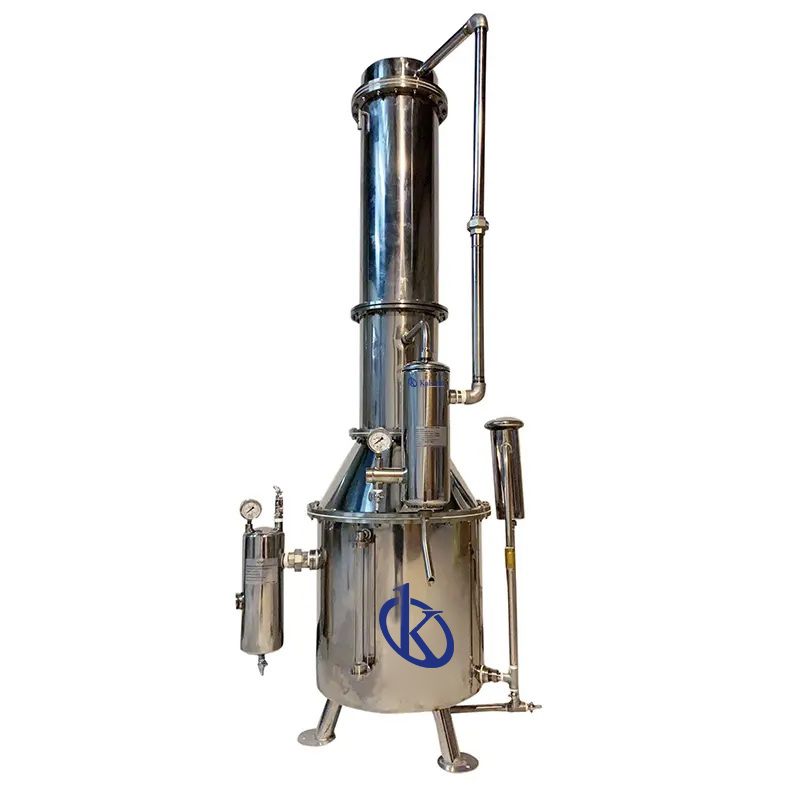
Electric-heating tower-type double water distilling
The precise operation of a medical laboratory depends to a large extent on the accuracy and reliability of its equipment. Among these, water distillers occupy a central place, although they are often underestimated. Water distillers are fundamental devices used to purify or decontaminate water, removing its impurities and providing an essential resource for various investigations and procedures.
Their ability to provide high quality distilled water has a significant impact on the accuracy and reliability of laboratory procedures, while saving significant resources and ensuring a safer and healthier environment within the laboratory facility.
Water Distiller (Small)
This equipment uses the principle of distillation, one of the oldest and most effective methods of water purification. The process begins with the evaporation of water at high temperatures, thus eliminating many types of bacteria and viruses. The resulting vapor is then condensed and collected in a container, thus separating the water from impurities as these elements do not evaporate and are left behind. This essentially pure distilled water is now free of contaminants and ready for use in work requiring high standards of purity.
Today’s water distiller technology has evolved considerably. Models can now be found that incorporate intelligent and advanced features, such as additional filtering systems to remove even more impurities and water quality monitoring functions that ensure constant compliance with required purity standards.
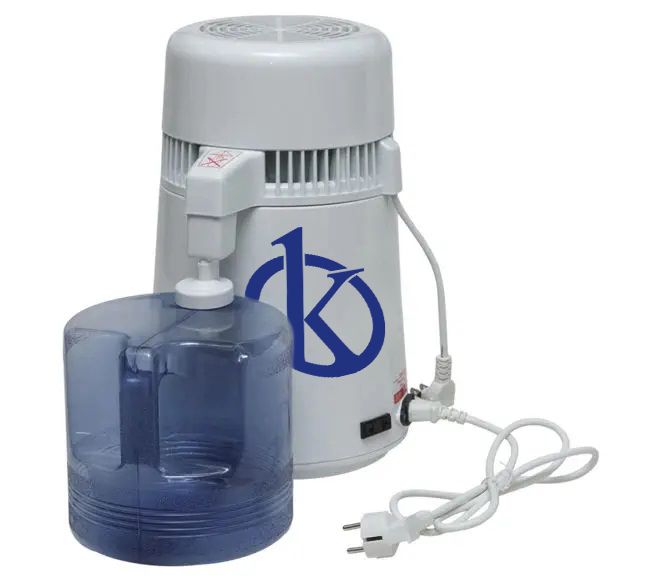
At Kalstein you can find the ideal Water Distiller for your Laboratory

Water Distiller YR05986
Water distiller YR05986 enables the most economical cost-saving production of high-quality distilled water for autoclaves and for all other applications in doctors’ practices....
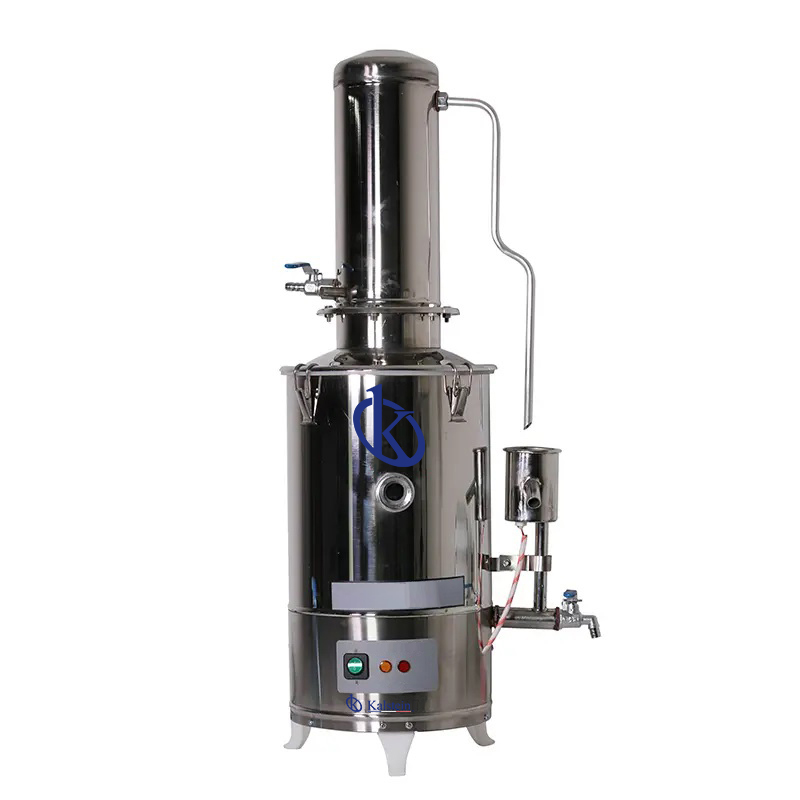
Stainless Steel Electric Water Distiller YR05969 – YR05970
The drain valve can drain the water in the bucket to improve the fouling conditions,Copper submerged heating tube, high ...

Electric Water Distiller YR05978 // YR05982
The water condensed from the boiler steam is the source water,Plate type steam heating tube, high thermal efficiency...
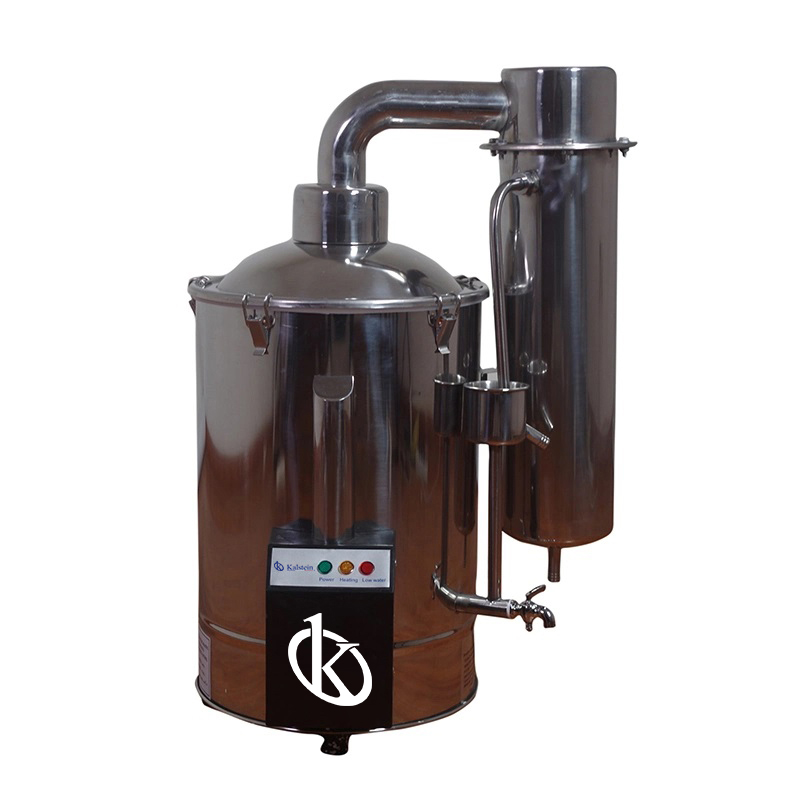
High Quality Automatic Control Water Distiller 20L YR05974
The lack of water automatically cuts off the heating power and continues heating after the return water is replenished ...
Our best-selling Water Distiller
- The Electric distilled water is made of high-quality stainless steel.
- The coil condensing structure has good cooling effect and large water output.
- The cooling water returns to the evaporation barrel to save water resources.
- The drain valve can drain the concentrated water in the barrel to improve the scaling situation.
- The heating power is automatically cut off when the water is lacking, and the heating will continue after the return water is replenished to the working water level.
- Copper immersion heating tube has high thermal efficiency and long service life.
| Model | YR05972 | YR05973 |
| Applicable power supply | 220V/50Hz | 380V/50Hz |
| Features | Lack of Water Automatic Control | |
| Power | 4.5kW | 7.5kW |
| Water consumption | ≥5L/h | ≥10L/h |
| Packaging size (carton)(cm) | 35×34×78cm | 42×38×90cm |
| Capacity | 5L/h | 10L/h |
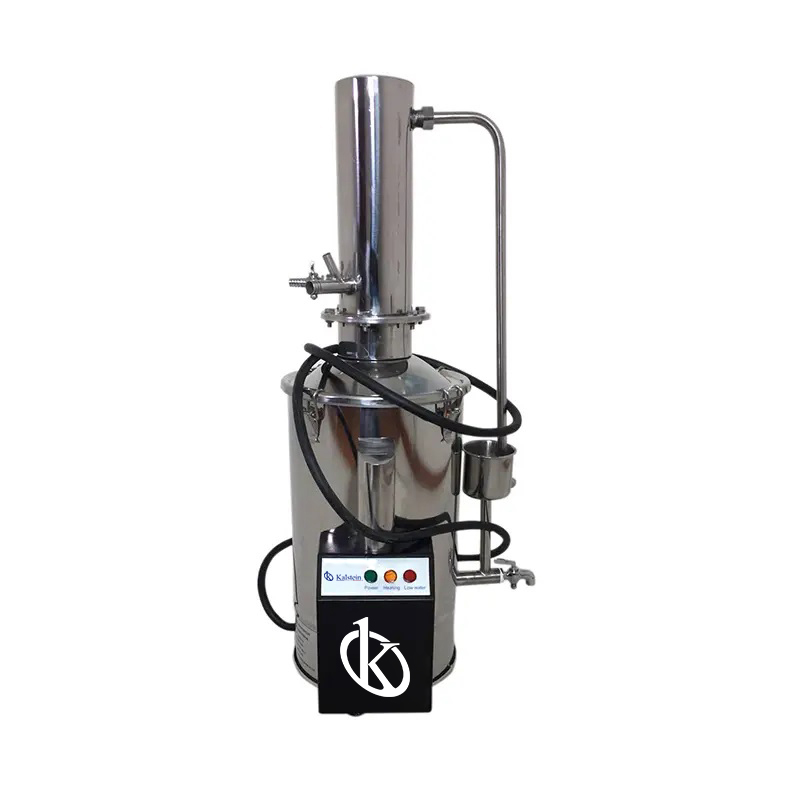
Catalog of models Water Distiller on offer
-
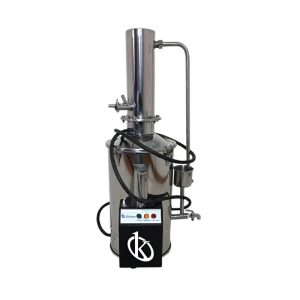
Automatic Control Water Distiller YR05972 – YR05973
Select options This product has multiple variants. The options may be chosen on the product page -
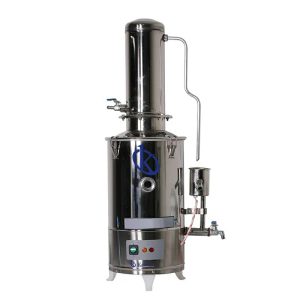
Stainless Steel Electric Water Distiller YR05969 – YR05970
Select options This product has multiple variants. The options may be chosen on the product page -
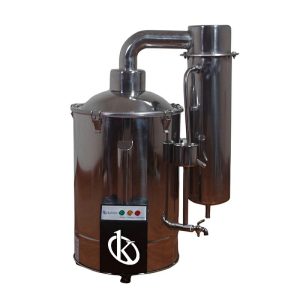
High Quality Automatic Control Water Distiller 20L YR05974
-
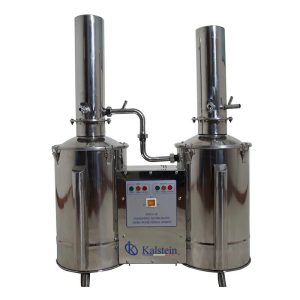
Stainless steel automatic double distillation water distiller YR05975 // YR05977
Select options This product has multiple variants. The options may be chosen on the product page -
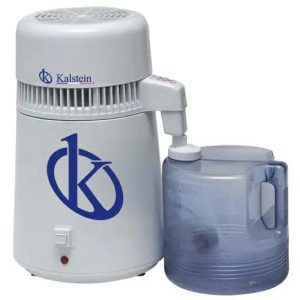
Water Distiller YR05986
-
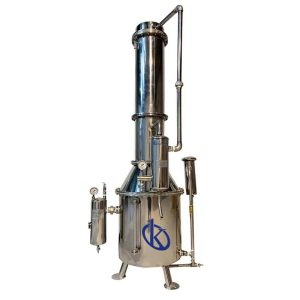
Electric Water Distiller YR05978 // YR05982
Select options This product has multiple variants. The options may be chosen on the product page -
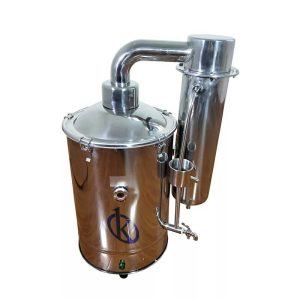
Electric Stainless Steel 20L Water Distiller YR05971
Guides to become an expert in Water Distiller
Discovering Water Distillers: A Vital Tool for Medical Laboratories
In medical laboratories, accuracy and quality of results are of paramount importance. To ensure this, reliable tools are required ...
Operation and Benefits of Water Distillers in the Medical Laboratory
Water distillers use a process called distillation to clean water. In its simplest form, distillation involves heating ...
"Goodbye Pollution: What You Should Know About A Water Distiller
These distillation systems are used to separate impurities from a liquid, such as organic contamination..
Water Distillation Technology: Its Importance in Laboratories and Hospitals
This equipment uses the principle of distillation, one of the oldest and most effective methods of water purification. The process begins with the evaporation of water at high temperatures, thus eliminating many types of bacteria and viruses...

Frequently asked questions from our customers about the Water Distiller
How to know the prices of the Water Distiller?
To know the price of the Water Distiller we invite you to send us an email with your request using the contact form.
What are the delivery times of the Water Distiller?
- If the equipment of your interest is in stock or if it must be manufactured.
- The type of freight you have chosen, this may be; air or sea.
How to make a purchase of the Water Distiller?
- By email: [email protected]
- By telephone: +33 (0) 1 78 95 87 02
- E-commerce: Via Kalstein's official website in your country.
How does the warranty work?
Can I request a quote online?
Of course, you can request a quote for the Kalstein team of your interest, directly from our official website. Once you have identified your preferred model, click HERE
